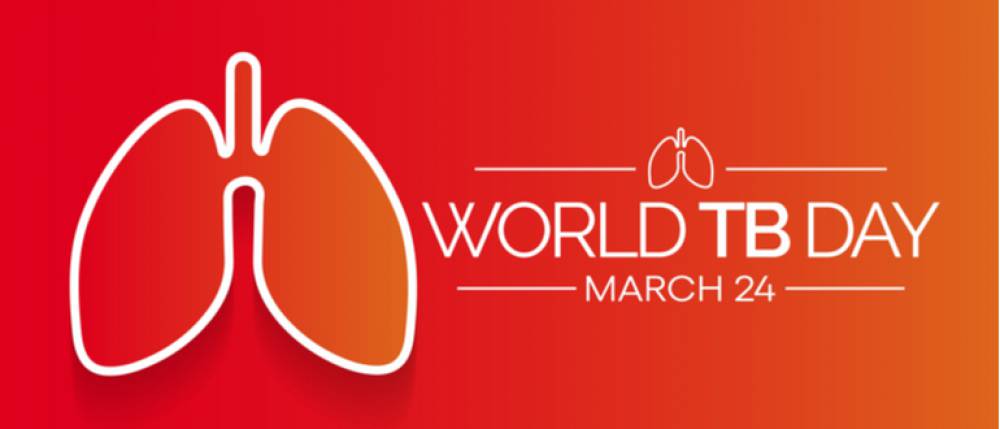Every year, World Tuberculosis Day is celebrated to spread awareness about Tuberculosis. Like last year, the World Tuberculosis Day theme 2024 remains “We can end TB” to revive the hope that this communicable Disease can be combatted.
Tuberculosis is a contagious disease first discovered by Sir Robert Koch, a German Microbiologist. In tuberculosis, a bacterium named Mycobacterium tuberculosis attacks the lungs and is one of the biggest causes of mortality in countries worldwide!
Simply put, Tuberculosis is a communicable infection that affects the lungs and is spread through the coughs and sneezes of infected individuals. India bears one of the highest burdens of tuberculosis, with approximately 800 lives lost to this lethal infection every year. Delays in diagnosis and a lack of awareness are two major factors contributing to our country's growing number of tuberculosis cases.
The good news is that awareness of this disease can help you prevent worsened conditions and save lives. Addressing the purpose of World Tuberculosis Day, we have compiled this article that debunks the myths around tuberculosis. Read further to know.
Demystifying 6 Misbeliefs about Tuberculosis
Myth- Tuberculosis is a genetic/hereditary disease
Fact- Tuberculosis is caused by a bacteria named Mycobacterium tuberculosis, and an individual’s heredity has nothing to do with the case.
It is spread when a patient with active TB coughs, laughs and/or sneezes. Also, TB residuals can remain dormant in people, and the symptoms might not even be noticeable right away. Symptoms of tuberculosis, such as fever, cough, chest pain, night sweats, and weight loss, may appear only in a mild form.
Myth- Only excessive smoking causes tuberculosis
Fact- Although smoking is among the known lifestyle habits that make the treatment of tuberculosis difficult, it can not be the root cause of Tuberculosis. TB is solely caused by mycobacterium tuberculosis and has no other cause. However, quitting smoke is recommended in order to keep your lung healthy and fit to fight the tuberculosis bacteria.
Myth- Tuberculosis only affects the lungs
Fact- Although lung tuberculosis is the most common type of TB, the bacteria can affect other body parts as well. The bacterium has the ability to affect a patient's kidneys, lymph nodes, brain, spinal cord, intestines, or heart's covering. Moreover, it can affect both men's and women's genital tracts, known as genital tuberculosis.
Myth- People vaccinated against BCG will not contract TB
Fact- BCG, or Bacille Calmette-Guerin, protects against certain severe forms of TB disease. For example, the vaccine protects children from meningitis and disseminated tuberculosis. It does not prevent systemic infection and, more importantly, it does not control the reactivation of latent pulmonary infection, which is the primary source of bacillary spread in the community. As a result, the vaccine's impact on preventing TB transmission is limited.
Myth-Tuberculosis is incurable
Fact- Tuberculosis is curable. There are plenty of medications available today that help in combating TB. Doctors usually prescribe a combo of antibacterial medicines for 6–12 months for people who have an active infection. The Food and Drug Administration (FDA) has approved ten drugs to treat tuberculosis (TB), as per the Centers for Disease Control and Prevention (CDC). People with multidrug-resistant tuberculosis may require at least six drugs to combat the infection.
Myth- Once treated, tuberculosis cannot reoccur
Fact-For combating the infection, tuberculosis requires prompt treatment and management. However, if the course of medication is incomplete or the patient fails to take medicine as prescribed, the risk of disease relapse increases. This can exacerbate your condition as the bacteria develop resistance to the drugs, resulting in drug-resistant TB, which is more challenging to treat.
Final Thoughts
Tuberculosis is a toxic killer, but being well-informed can help you undertake adequate disease protection. Along with myths, awareness of warning signs is essential for timely detection. One of the most common symptoms of tuberculosis is low-grade fever, with the body temperature rising primarily in the evenings, weight loss, and loss of appetite. Remember that if tuberculosis is untreated, it can lead to death. The only way to treat this fatal illness is early diagnosis and timely medication.
>> Also Read: All You Need to Know About Tuberculosis Treatment
Disclaimer: The above information is for reference purposes only. Kindly consult your general physician for verified medical advice.
